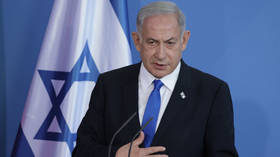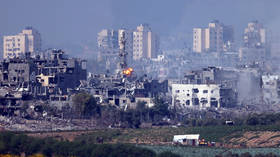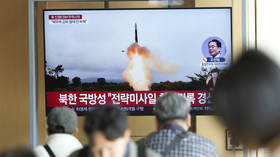Netanyahu cancels delegation’s US visit after ceasefire vote

Israeli Prime Minister Benjamin Netanyahu on Monday said that now he will not send a delegation that had been expected in Washington, after the US refrained earlier that day from vetoing a UN Security Council resolution on a Gaza ceasefire.
The UNSC passed the resolution on Monday, demanding an “immediate” ceasefire between Israel and Hamas in Gaza during the Muslim holy month of Ramadan, which ends in two weeks. The US abstained from casting its vote on the council, while the remaining 14 members voted in favor of the resolution, which also demands the unconditional release of remaining Israeli hostages and highlights “the urgent need to expand the flow” of aid into Gaza.
Washington’s decision not to veto the resolution was a “clear retreat from the consistent position of the US” since the start of the war, Netanyahu’s office stated, following the UNSC vote.
“This withdrawal hurts both the war effort and the effort to release the hostages,” it explained, “because it gives Hamas hope that international pressure will allow them to accept a cease-fire without the release of our hostages.”
According to the statement, Netanyahu made it clear to the US on Sunday that he would not send the high-level delegation to discuss the Israeli military’s plans for an operation in the southern Gaza city of Rafah without the veto at the UNSC.
Meanwhile, US State Department spokesman Matthew Miller called the statement “surprising and unfortunate.”
The US had concerns about the resolution because it did not condemn the October 7 attack, but did not veto it because its call for a ceasefire and for the release of hostages is consistent with Washington’s policy, Miller said, calling the resolution “non-binding.”
White House spokesman John Kirby also called the cancellation of the Israeli delegation’s visit “disappointing” and said that Washington was “perplexed by this” because the US abstention “does not represent a shift in our policy.”
The US still supports Israel and is providing weapons systems and other capabilities for the country to defend itself, Kirby added.
Israel is planning to launch a ground assault on Rafah despite international warnings of a potential catastrophe. More than half of Gaza’s population has fled to take refuge in the city due to the ongoing Israeli bombardment of other parts of the enclave.












